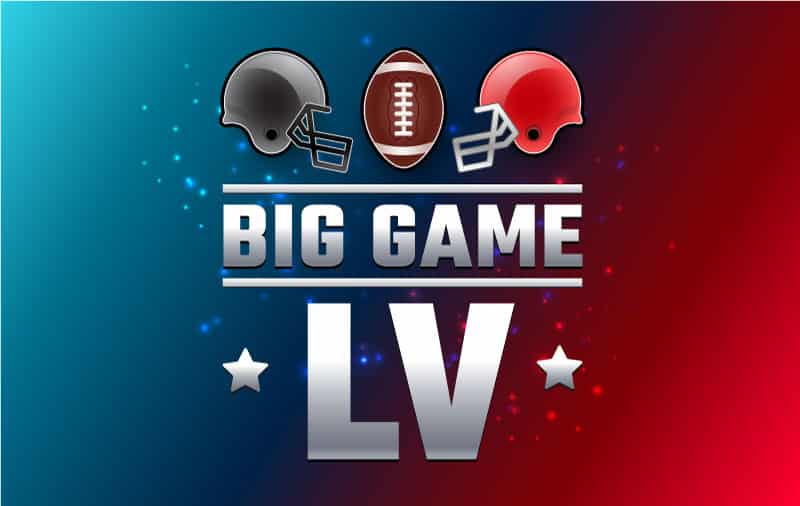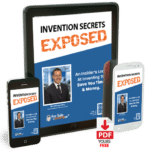Why can't you say "Super Bowl"?
- Super Bowl trademark explored

There is nothing more American than the Super Bowl. And there is nothing even more American than big businesses protecting their trademarks.
If you wanted to sell something with the word “Super Bowl” on it or even use the term “Super Bowl” in a sentence, you might want to choose some other terms. The NFL has already registered the name “Super Bowl” and has made it practically impossible for anyone to do anything with those words without their permission.
Technically, the NFL owns the trademark for “Super Bowl” but only for the name, not for the words “Super Bowl”. You might have noticed that even though the words “Super Bowl” are in everyday use, many people still put quotes around them. That is because using them without quotes makes you a violator of the NFL’s trademark rights.
What is a Trademark?
A trademark is a word, phrase or symbol that identifies and distinguishes the source of goods or services. For example, when you see a Nike “swoosh” logo on their shoes, you immediately know Nike makes them.
The “swoosh” logo acts as a trademark for Nike because it distinguishes its products from others that Nike does not make.
A company can also own a trademark for its company name. For example, Microsoft owns the trademark for its company name, and its logo is another way of distinguishing Microsoft products from other companies products. The same case applies when using the words “Super Bowl.”
What Is the Story Behind the NFL’s Trademark on the Name “Super Bowl”
To understand why the NFL has trademarked its biggest game, it’s essential to comprehend how trademarks work. In a nutshell, a business must use its brand enough over time to show that consumers recognize the brand as unique and specific to that business. If it does so, it can apply for trademark registration with the United States Patent and Trademark Office (USPTO).
The NFL applied for its “Super Bowl” trademark in 1969 and was granted one on Jan. 25, 1971. At first, no one thought much of this move on the part of the league because there was no such thing as a Super Bowl when it was applied for or granted. The first Super Bowl was played after this date, and not until years later did it become clear that this move by the NFL would be incredibly lucrative as an entertainment event.
Currently, the “Super Bowl” is among the most famous trademarks in the country, with an estimated value of $500 million. Courts have upheld the NFL’s right to prevent others from using its brand without permission, except for specific limited uses.
The company has an army of lawyers on guard to protect its valuable trademark, and it’s not afraid to go to the mat with anyone who uses “Super Bowl” without permission or in a misleading way. That includes people trying to cash in on the game and vendors who use the words “Super Bowl” in their advertising.
Are There Any Exceptions?
Yes. There are a few exceptions to this rule. For example, if you’re a news reporter or covering a news event, it’s fair to use the term in your reporting. But in most cases, if you’re not paying for the rights to use the trademarked name, you can’t say the event’s full name. Instead, you should say “the big game” or “the Super Bowl.”
Is This an Appropriate Use of a Trademark?
Yes. The NFL earns millions of dollars every year when advertisers pay to use the Super Bowl name, so it’s not surprising that the league is protective of its trademark.
Titles and trademarks are important for branding because they protect a company’s intellectual property. A company can avoid diluting its trademark if it protects its brand name. If other companies adopt a similar name, customers may be unable to tell which company they are purchasing from. The result of this kind of confusion is decreased sales, which can lead to bankruptcy or even closing entirely. By keeping its mark active and intact, the NFL avoids these issues.
How Can You Benefit From Having a Trademark?
Claiming intellectual property rights to a phrase or name is a commonly used strategy by significant sporting leagues in the United States, but that should not stop you from protecting your brand.
Trademarks are important because they help protect your brand. If another company uses your registered trademark on their goods or services, they violate your rights and could confuse potential customers. This confusion could hurt your business, in particular, if you have built up a reputation for quality goods or services while other companies have established themselves as unreliable sources of similar products.
Your trademark can be used in advertising and other materials as a way to promote and distinguish your business. Trademarks can also be extremely helpful in copyright cases as they prove that you created something original.
Even if you don’t plan to expand nationally or internationally, protecting your brand name is important because people often assume that if a name isn’t trademarked, it’s fair game to use.
If a competitor uses your trademark, there’s no guarantee that they’ll stop when you ask them nicely. And because there are limited spaces in the marketplace and unlimited ways we communicate today, using someone else’s trademark dilutes the value of their brand and confuses consumers about who makes what.
Overall, the trademark process seems to work well for many entrants into the marketplace. As a potential business owner, though, you should make sure you know your rights and responsibilities under the law. In addition, it is essential to note that the mere act of registering a trademark does not mean that you will have exclusive rights to a particular word or phrase.
The Bottom Line
Overall, the NFL is right to protect the Super Bowl trademark. The event is worth billions of dollars, and the trademark helps defend it against anyone trying to use similar names, logos, or brands to capitalize on its success. No organization has the right to use “Super Bowl” to push their own agenda, and they shouldn’t be able to fool people into thinking they do. So overall, maintaining the trademark makes sense because it is extremely valuable.








